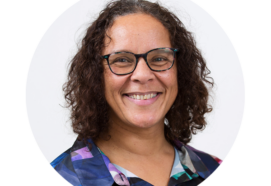Being blessed with life means that we also have to cope with not only our own mortality, but also the emotions of coping with friends and family dying.
Does an individual’s physical and mental ability affect how they experience and cope with death?
In the past it has been assumed that both very young children and individuals with learning disabilities were unaffected by the death of someone that they were close to. However, it has been proven that babies are affected by the death of a significant care giver and, although there is currently limited research, we are beginning to see and understand that children, young people and adults with learning difficulties are also affected by bereavement.
Children aged between birth and two years of age have no real concept of death and don’t have an understanding of the finality of death. After the death of a significant caregiver a child who is below 2 years of age may try to look for the person who has died. They can become clingy and have disrupted sleep and feeding patterns.
Individuals with special educational needs and disabilities are also affected by death, including children with the severest SEND. Those who have profound and multiple learning difficulties and are also non-verbal will be affected by a death in ways that are similar to those of young children. This will include recognising that the person is no longer there, picking up on changes in the environment etc.
Nothing impacts a child more than the death of someone close to them or someone they loved. It is a fantasy to believe that children will merely ‘get over’ a bereavement – that they are simply ‘too young’ to be truly affected by the loss or that they don’t have the understanding to process what has happened.
Children who attend special schools tend to experience bereavements at a much younger age and in greater frequency (due to the medical needs of many of the pupils). The nature of special schools means that pupils are together for many years, often in the same groups. These smaller cohorts of children mean that it is even more noticeable when a pupil dies. The feel of the class alters dramatically, the dynamics are changed, equipment (and sometimes staff) moves or is taken away and there can be changes in sounds and even smells of the classroom. Also pupils pick up on the emotions and moods of the staff.
Children aren’t born with a fear of death.
It is something that is passed on to them from adults and society as they grow up.
Things to remember when supporting bereaved children with SEND:
- A child who is grieving first needs support, reassurance and love
- Acknowledge their loss
- Be honest
- Answer their questions
- Use very concrete language when explaining the death to the child
- Don’t try to suppress their grief
- Make sure the child knows that the death is not their fault
- Ensure the child knows that they are safe and that there are people who care for them
- Help the child to manage the changes in their life following the death
- Help the child to understand what death means and how it affects them and their emotions
- Give the child an opportunity/a way to say “goodbye” to the person who has died
Listening and showing that you care are the key aspects of supporting any bereaved child, regardless of their intellectual or physical abilities.
Sarah Helton
BackPocketTeacher
If you enjoyed this blog post, you may be interested in the upcoming Child Bereavement Conference.



Discussion
I love your opening comment!!
Thank you Philip. Sarah
Thankyou for writing so eloquently about such a difficult subject. , I plan to try to follow your blog now
Best wishes
Michaela